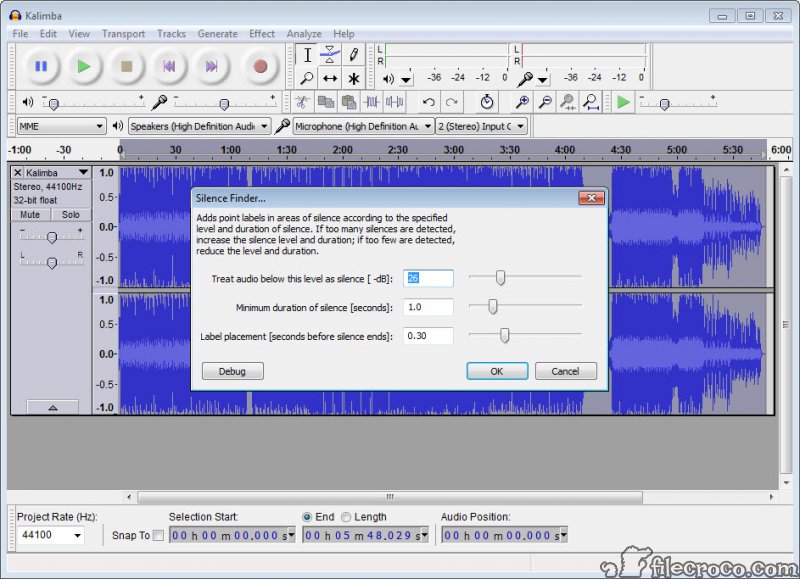
Check yours first, but be sure to notice the version number available–the Audacity project also makes beta releases available on its Web site that have new and improved features, and tends to take longer than most projects before declaring a beta release “stable.” So you might find the current beta version direct from the Audacity project stable for your own use and capable of some features not provided in the older release.Īudacity works with Linux’s sound subsystem on almost all sound cards, and is suitable for use with GNOME, KDE, or any other desktop environment. Audacity includes a selection of effects plugins, and can also use industry-standard plugins often made for commercial audio editors.Īudacity is popular enough that most mainstream Linux distributions include it among the standard packages provided by their package management systems.

With Audacity, you can record audio from microphones or other playback devices, mix, edit, and adjust the recordings, edit existing sound files, and output the results to a wide variety of sound file formats.

Audacity is a free, open source sound recorder and editor that runs on Linux.


 0 kommentar(er)
0 kommentar(er)
